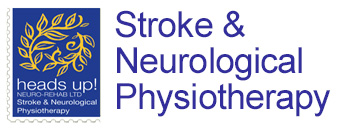Stroke
How a stroke can affect your life
A stroke happens when the blood supply to part of the brain is cut off, damaging brain cells. Damage to the brain can affect how the body works and it can also change how you think and feel. The effects of a stroke depend on where it occurs in the brain, and how big the damaged area is.
You may experience weakness or stiffness in your arm and leg on the affected side; altered balance and sensation; difficulty with speech and communication and possibly swallowing. You may notice changes to your personality; emotion and visual disturbances.
Stroke can be life-changing. It can happen to anyone of any age and affects everyone in different ways.
Supporting your recovery after a stroke
Recovering from a stroke can be a long and challenging journey.
Our physiotherapists use a hands-on approach to re-align and activate your muscles whilst facilitating your movement, building on your strength and control. It is by re-educating your brain and body through movement that progress in rehabilitation can be achieved.
What to expect from heads up
- First assessment
We will take time to listen to how your stroke has impacted your life, what difficulties you are experiencing and discuss what is important to you to focus on.
We will assess how your stroke has affected you physically, cognitively and emotionally and support you to formulate short- and long-term goals to work on.
We will take time to explain what we are doing and to answer any questions you may have about your situation.
We will provide some initial advice, treatment and guidance with exercises to carry out at home.
We will discuss what your treatment plan may look like and offer treatment sessions that will suit your needs.
- Treatment plan
Assessment is ongoing throughout the treatment process as your ability changes and progress is made.
Treatment may consist of stretches; building muscle strength and co-ordination; carrying out functional tasks with your affected hand; improving balance control and re-educating your walking pattern. It is led by your needs and wants but the therapist will evaluate the best treatment methods to achieve your goals. Your home exercise programme will be updated and reviewed regularly.
After discussion, we may liaise with your GP or consultant about your medication and medical management. We may signpost you to organisations that can support you and/or refer you to other health professionals.
There will be regular opportunity to discuss your progress and your changing needs.
